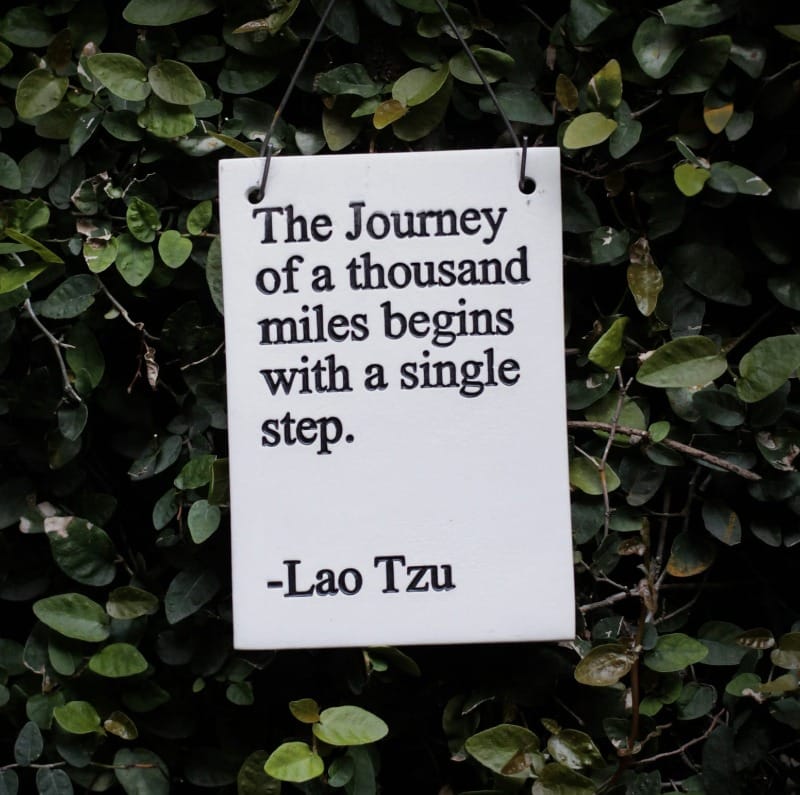Music therapy for when its hard to breathe
Using the themes of the music from Disney’s Encanto to help calm the nerves at 3AM.

Life Lessons
Music therapy for when its hard to breathe
It’s 3 AM. I wake up. The last three days my fitness tracker has recorded elevated RHR, lower than normal blood oxygen. I put it down to their upgraded technology and that I’ve never seen these numbers in real time before.
As someone who’s suffered from panic attacks in the past, I know full well that it feels like a heart attack. I’ve taken myself to the ER ward and had all the tests only to find it was my need to find calm and head space.
My lungs feel tight. I use a nasal spray. Maybe this will help. I take some deep breaths. Purposefully. No pain in the chest. Just that familiar tense diaphragm. Need to try harder. Deeper breath. Let it out. Deeper breath. Let it out slowly.
I recently watched Disney’s Encanto. There’s 3 musical numbers that have crawled into my ear like worms and wrapped themselves around my inner brain stem. I hear the music when I’m both awake and asleep. Usually when this happens, its because there’s something in the story or the music that resonates so deeply that I need to take some time to explore it.
Surface Pressure
The first is ‘Surface Pressure’ sung by Mirabel’s middle-sister, ‘the strong one’, Luisa (voiced by Jessica Darrow). The song is all about fear of failure.
If I am not perfect in my ability to provide a service, then I’m useless and worthless.
This song resonates on the following levels:
- My ability to be the best parent to my kids
- My ability to be the best partner to my spouse
- My ability to be the best child to my aging parents
- My ability to provide for my colleagues at work
- My ability to contribute to my career and personal development
Like with the narration of the song, fear of failure is fed by the constant demands on my attention that require my immediate action or reaction.
Let’s not forget my innocent fur babies who never give up on their 5 PM persistence that it’s dinner time — only it’s 4 PM.
But the real straw that breaks the camel’s back are the constant reminders and notifications such as with the Duolingo app notifications warning me that I will lose my streak. Google Photos telling me it’s compiled a photo curation that I should look at now. News headlines to the newspapers to which I’ve subscribed. Talk about straw that breaks the camel’s back! Full stop. I’ve had to turn most of these notifications off.
We live in a terrible culture where your attention is being sought by every useless thing imaginable. If its 80% unnecessary content and 20% necessary — I’m turning it all off.
Hopefully with improvements in user experience, society will start using a pull notification system instead of relying on push notifications. I really don’t need any app telling me when it thinks I should give it attention.
With do-not-disturb or focus-time turned on for most of the day, unsurprisingly, I keep missing important emails. I’m now late to meetings. It’s solely on me to keep tabs of the things I need to do or read.
With remote work, I use a giant whiteboard to partition myself off from my household. It’s my fortress of solitude. This gives me some place to at least hide when I am looking for focus time.
The underlying message of the song is to recognize your base needs and make sure you’re taking the time for yourself. Know when to stop or to tell the people around you to stop. Recognize your limitations. Draw up boundaries.
What else can I do
The second song is sung by Mirabel’s eldest sister Isabela, sung in real life by Diane Guerrero and Stephanie Beatriz.
This song is about being stereotyped and shoe horned into a role that you can’t escape. It is about reaching your full potential by letting go of the shackles of trying to live up to some perfect model. It asks: am I allowed to be imperfect? If I’m imperfect, will I be accepted? Is this okay? Is it okay to want to be imperfect?
This song resonates on a whole other level as it brings me up against my fear of showing my true self. It breaks open the basket of impostor syndrome and what that means.
- I am a person with great empathy and compassion. But every now and then as a mother, as a daughter, as a colleague, as a wife, as a friend — I just want to say I really don’t give two hoots about this.
- I have always been a rebel — that emo chick in high school. A fan of escapism. An introvert (and yet I appear extroverted). Occasionally, I’m depressed. I’m often aware of the crazy that lurks just under the calm.
- Giving myself permission to own my crazy. Recognizing what I am that brings value. Instead of conforming, seeing how its my different way of thinking, story telling, or doing things that actually is the value here.
I grew up Buddhist. Most non-Buddhists may see this as if I was born with a golden lotus in my mouth. Every religion has it’s challenges.
You already have mindfulness down. You already have been meditating from a young age. All the recommended benefits of practicing loving kindness and the whole Tripitaka of advice that you’ve accumulated over a lifetime.
YET — there is this pressure. Pressure to ALWAYS be understanding, to ALWAYS be kind, to ALWAYS be compassionate. To ALWAYS be reflect and be mindful and to ALWAYS be improving. To ALWAYS accept and reflect on imperfections.
I had an epiphany when I realized the mantra began with “May I be well” and not “May all beings be well ”.
I was in my late thirties.
How is that even possible? The Mettā Sutta is on continuous repeat at every Buddhist function. Thank you to the Urban Monk of the GTA for teaching my kids the Mettā Sutta in English, my original was always the Pali — not as effective.
Let’s pair this impostor syndrome from being Buddhist with growing up in a perfectionist household. How this translates as a kid growing up to a teenager and then a full grown woman — is that not only do I embody the adaptability and fluidity to conform to all the needs of society but I also adapt and evolve myself to assimilate myself to my work culture or to my friends or to my family. I’m still me but I sometimes feel like a chameleon shape-shifting based on the needs of the many. Clearly its easy to lose oneself.
Ironic right? Like Buddhism clearly states — own your shit. Be mindful of yourself. But there is such a thing as overthinking and seeking perfection for its own sake. Buddha even said — this is not it. And yet, here I am.
The happiness of letting go. That is what this song is about. Letting go of perfectionism is the true path to losing impostor syndrome.
We don’t talk about Bruno
Sung as a madrigal with the voice talents of Carolina Gaitán, Mauro Castillo, Adassa, Rhenzy Feliz, Diane Guerrero, Stephanie Beatriz, and Cast.
Where to start. This song is an absolutely beautiful composition of mixed voices. I know its up for interpretation any number of ways.
Let’s focus on the inner negative dialogue. I’m not good enough. I’m not going to get to my goals. It is too hard to convince people around me to recognize me for who I am.
Talking about Bruno is to talk about things in the negative. Predictions of the future are attributed to his powers — He’s blamed for people getting fat, going bald, (fish) dying. He’s blamed for the weather when clearly it’s in his sister’s power to control the weather.
He’s an introvert who cares deeply for people and doesn’t have the means to defend himself. He’s non-confrontational. He is true to himself but recedes because no one can see him.
As discussed above, I’m a bit of a chameleon. I am pretty adept at taking on responsibility of getting a task done, facilitating a call, keeping kids entertained with very little resources and for hours, making a 4 course dinner, and so on and so forth, preferably not all at once.
Being a strong independent woman brings its share of shade. Criticism comes in all forms. My perfectionist nature is to listen and to self-correct.
When its clear to me that an impression left was not of my intention. I feel defeated. I feel hurt and disappointed by the way someone I trust sees me. I am triggered. Unlike Bruno, I won’t go into hiding but that doesn’t mean I don’t want to. This is 100% best way to dis-empower a person.
A person giving you this type of feedback is opening up a confrontation. They may have their own personal hang up or emotional reason to be reacting to you. But if you are a hard working person with good intentions and the accusation falls real short of the mark — it’s their shit not yours.
Its bad enough that I have my own inner negative self-talk. It’s not on me to have to explain or take on the emotional burden of the person who has a problem with me.
In ‘We don’t talk about Bruno’, the take home is: Let them think what they think — I know who I am. I will be who I am.
More like this:







